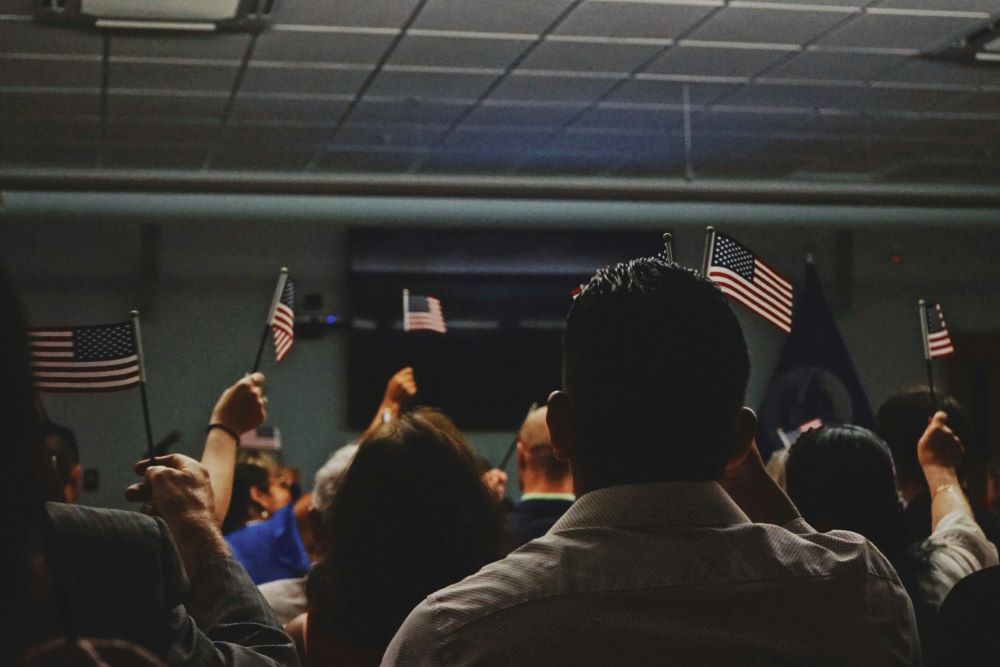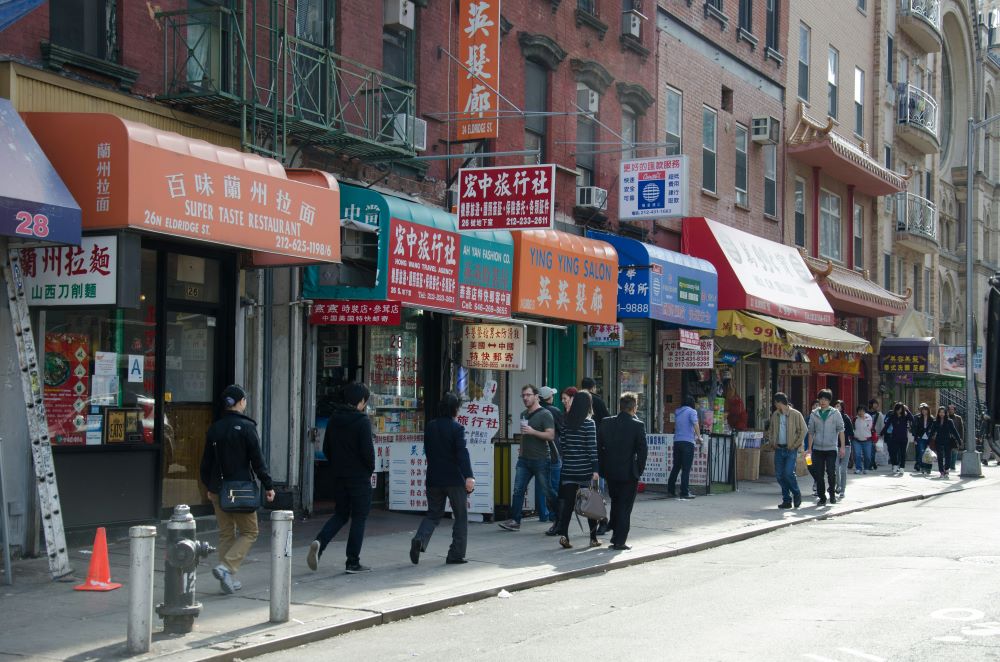
(Unsplash/K E)
Though A.J. Fezza was born in what was once an Italian enclave in Bensonhurst, Brooklyn, his family was one of many who migrated to suburban New Jersey in the 1990s. His parents, children of Italian immigrants, "loved Bensonhurst for its grittiness, nosiness and noise, even if they halfheartedly deny it," Fezza recalls. Although they chose to raise a family in suburbia, Fezza surmises by their heartfelt manner of speaking about the past that the couple "left something behind in Brooklyn."
And so Fezza grew up in Manalapan, New Jersey, among what he considers "whitewashed" Italian Americans. In his eyes, the sprawling landscape of suburbia "put the nail in the coffin" of any hope of maintaining a shared cultural heritage. To Fezza's mind, Italians and others who left their urban enclaves of yesteryear for the comforts of suburbia had chosen de facto to become "generically white."
Finding the nonspecificity of his identity "insufferable," Fezza made a concerted effort to reconnect with his ethnic roots. Learning Italian, visiting relatives in Naples and even affecting a slight Brooklyn Italian accent were means of staving off a self-described spiritual emptiness brought on by assimilation and atomization.
Part of Fezza's cultural experimentation brought him to rediscover his Catholic faith, a tradition from which many of his family members had strayed. Though some of his experimental ethnic affectations eventually fell away, Fezza's esteem for Catholicism stuck, becoming a central part of his life.
Ethnicity seems to have slipped through the cracks of today’s polemics over identity. Immigrants and their offspring have always struggled to navigate the matrix of the "great American melting pot," oscillating between extremes of cultural siloing and assimilation. But the impetus to make a definitive choice about just how much to hold onto one's culture has become less pressing as immigrant families move into their second and third generations. Such an uprooted social imagination unsurprisingly tends to go hand in hand with the loss of faith, and it creates larger scale secularization.
Should we fail to appreciate our origins, we deprive ourselves of the chance to truly understand who God created us to be and what he calls us to do with our lives.
Andro Rodriguez, an American born to Cuban parents currently living in Florida, tells me that among his peers, "there seems to be a fascination with 'Latin culture' to the point of commodification. All the surface level culture is fetishized, but when you start to mention the core values of your particular culture, people look at you with suspicion," he says. "You're encouraged to practice the more shallow traditions, but you must let go of embedded cultural ideas in favor of whatever is in vogue here and now." Ultimately, Rodriguez wonders, can a series of "boxes" really do justice to the uniqueness and nuances of the cultures contained within them?
With the rise of immigration from Latin America and Asia, the particularities of each culture risk being subsumed into catchall categories. Similarly, members of the African diaspora whose families' presence in the U.S. goes back to the slave trade are offered the monolithic "Black" box to check off. That implicitly glosses over the past pan-Africanist esteem for tracing one's roots to their ancestral traditions.
What's more, as Fezza suggested, the term "white" has taken on a radically different tone. Once applied almost exclusively to Anglo-Saxon Protestants, the categorization has now engulfed southern and eastern Europeans as well. This shift has been brought on by "white flight" en masse from urban ethnic enclaves to the suburbs.
For a growing number of second- and third-generation Americans, attempting to retrieve their cultural heritage offers an alternative to the ideological deadlock. For them, identity is less a polemic and more a tool for forging meaning and connectedness in an increasingly disenchanted age. Like Fezza, Rodriguez has found that getting closer to his roots has made his life more meaningful and affirmed his place in a particular story, one he thinks "shouldn't be forgotten."

(Unsplash/Glenn Abelson)
Justus Walker, a Canadian of Indian descent whose parents were born in Jamaica, explained to me how his parents chose to forego some Indian traditions in order to blend into their small Canadian neighborhood, which was not exactly hospitable to foreigners or people of color. But after the initial period of acceptance, Walker remembers his mother made a concerted effort to reintegrate family culture into their lives, mainly through cooking Jamaican and Indian cuisines and wearing her sari — as well as planning Jamaican cultural events at their Catholic parish.
But for some young people growing up in the few remaining North American ethnic enclaves, the choice to assimilate is made not by their parents, but by themselves.
Kristian Josifoski, who grew up in a Macedonian community in Indiana, distanced himself from his community as he found it difficult to fit in and saw "only its negative aspects." But eventually, he felt drawn back to his roots; propelled in particular by communal events like elaborate weddings, family gatherings filled with dancing and the faith of the Byzantine liturgy. Josifoski describes returning to his heritage to be "undoubtedly the most positive and transcendent experience" of his life.
But the broader scope of this trend speaks to a need that both progressive identitarians and "color blind" reactionaries seem to look past. The traditions, social ties and historical legacy that come with one's ethnic cultures offer a concreteness, a richness that transcends the abstractness of the common modes of conceiving identity. It implies a dynamic, living reality that is more promising than expressivist individualism or meritocratic universalism.
Advertisement
Further, recovering our roots in said cultural richness — with its beauty, traditions and sense of enchantment — disposes us to appreciating our spiritual rootedness. As Pope Francis reminds us, "You can't do anything in the present, or in the future, if you are not rooted in the past, in your history, in your culture, in your family. … None of us," he continues, "were manufactured in a laboratory: we have a history, we have roots. And everything we do, the results we achieve, the beauty we create in the future, all comes from those roots."
Should we fail to appreciate our origins, we deprive ourselves of the chance to truly understand who God created us to be and what he calls us to do with our lives.
That the questions implied in exploring one's cultural identity overlap so much with the journey of a soul seeking God ought to make pastors consider how they can encourage second and third generations to retain their cultural roots. This is especially the case in parishes that are home to ethnic communities of color, who may face increased pressure to assimilate.
Perhaps the new ethnic wave is merely a passing trend. But the questions it gives rise to deserve our attention.






